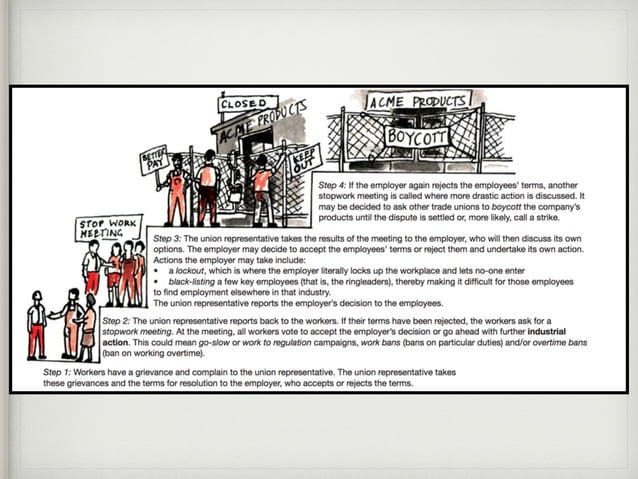The Challenges Of Transitioning From Federal To State/Local Employment

Table of Contents
Salary and Benefits Discrepancies
One of the most significant challenges transitioning from federal to state/local employment involves salary and benefits. Federal employees often enjoy competitive compensation packages, and a shift to state or local government can mean a reduction in overall compensation.
Lower Compensation Packages
State and local government positions frequently offer lower salaries than comparable federal roles. Benefits, including healthcare, retirement plans, and paid leave, also often differ significantly.
- Health Insurance: Premiums and co-pays may be higher in state/local plans compared to federal plans.
- Retirement Plans: Federal employees often contribute to a defined benefit pension plan, while state/local plans may be defined contribution (401k style) plans, requiring more personal investment and financial planning.
- Paid Leave: The amount of accrued vacation, sick, and holiday time can vary considerably.
Websites like the Office of Personnel Management (OPM) and state/local government websites provide resources for comparing benefits packages. Careful comparison before accepting a position is crucial.
Impact on Retirement Savings
The lower salary and potentially less generous retirement benefits in state/local government roles can significantly impact long-term financial planning and retirement savings.
- Adjusting Spending: Creating a realistic budget and adjusting spending habits to accommodate the potential salary reduction is vital.
- Investing Strategically: Exploring investment options to help offset the potential shortfall in retirement savings is important.
Tools like online retirement calculators can assist in planning for retirement under varying financial circumstances.
Navigating the Application and Hiring Process
The application and hiring process for state/local government jobs differs significantly from the federal process, adding complexity to the transition.
Different Application Procedures
State and local governments have diverse application procedures. Resume requirements, interview styles, and background checks vary considerably from federal standards.
- Resume Formatting: Some states may prefer specific resume formats or keywords, unlike the federal government's standardized application process (USAJOBS).
- Interview Styles: Interviews may be more focused on specific skills and experiences relevant to the immediate role rather than broader leadership potential.
- Background Checks: The scope and intensity of background checks can differ between agencies.
Utilizing state/local government websites and career services can provide valuable insights into specific application requirements.
Competitive Hiring Pools
State/local government jobs often attract a large pool of applicants, resulting in intense competition.
- Competitive Resume: Tailor your resume and cover letter to highlight experiences directly relevant to the specific job description. Quantify your achievements whenever possible.
- Networking: Attend industry events, connect with recruiters on LinkedIn, and network with individuals already employed in your target state/local government agency.
Building a strong professional network can significantly increase your chances of securing a desired position.
Variations in Job Responsibilities and Culture
Moving from federal to state/local employment involves adjusting to different job responsibilities and workplace cultures.
Differences in Job Scope and Authority
Job titles and responsibilities often vary between federal and state/local roles, even if the core functions seem similar. The level of authority and autonomy can also differ significantly.
- Job Titles: A "Program Manager" in a federal agency might have different responsibilities than the same title in a state agency.
- Decision-Making: State/local agencies may have a less hierarchical structure, impacting decision-making processes.
Thoroughly review the job description and clarify responsibilities before accepting an offer.
Work Environment and Organizational Culture
Workplace culture differs considerably between federal and state/local government agencies.
- Communication Styles: Communication might be more informal in some state/local agencies than in federal agencies.
- Team Dynamics: Team sizes and collaboration styles can differ dramatically.
- Management Styles: Expect diverse management approaches compared to the structure often found in federal agencies.
Transferring Skills and Experience
Successfully transitioning from federal to state/local employment requires effectively showcasing your transferable skills and addressing any perceived skill gaps.
Highlighting Relevant Experience
Federal employees possess many skills highly valued in state/local government. Effectively highlight these transferable skills.
- Project Management: Showcase successful project completion, budget management, and adherence to deadlines.
- Policy Development: Demonstrate experience in research, analysis, and policy implementation.
- Budget Analysis: Highlight experience in financial planning, budgeting, and resource allocation.
Frame your federal experience in a way that directly addresses the needs and requirements of the state/local job.
Addressing Potential Skill Gaps
Identify and proactively address any perceived skill gaps between your federal experience and state/local job requirements.
- Professional Development Courses: Consider taking online courses or workshops to acquire new skills.
- Mentorship: Seek mentorship from individuals working in your target state/local government agencies.
- Networking Events: Attend industry events to learn about current trends and skill requirements.
Conclusion: Successfully Transitioning from Federal to State/Local Employment
Transitioning from federal to state/local employment presents unique challenges, including salary and benefits discrepancies, varied application processes, differing job responsibilities and work cultures, and the need to effectively transfer skills. Understanding these differences before making the transition is paramount. By carefully researching specific opportunities, utilizing available resources, and strategically planning your move, you can successfully navigate these challenges and embark on a fulfilling career in state or local government. Start planning your transition today – research state/local opportunities and leverage the resources discussed to make a smooth and successful transition from federal to state/local employment.

Featured Posts
-
 From Times Trump Interview Canada China And The Question Of A Third Term
Apr 28, 2025
From Times Trump Interview Canada China And The Question Of A Third Term
Apr 28, 2025 -
 2000 Yankees Diary A Look Back At The Royals Win
Apr 28, 2025
2000 Yankees Diary A Look Back At The Royals Win
Apr 28, 2025 -
 Bubba Wallace Involved In Crash At Phoenix Raceway Due To Brake Problems
Apr 28, 2025
Bubba Wallace Involved In Crash At Phoenix Raceway Due To Brake Problems
Apr 28, 2025 -
 Mets Biggest Rival Their Starting Pitchers Dominance
Apr 28, 2025
Mets Biggest Rival Their Starting Pitchers Dominance
Apr 28, 2025 -
 Secret Service Investigation Ends Cocaine Found At White House
Apr 28, 2025
Secret Service Investigation Ends Cocaine Found At White House
Apr 28, 2025
